 I recently caught up with Paizo’s James Sutter for a conversation about his work heading up Pathfinder’s new fiction line, as well as his own writing and influences. In part one of our conversation James tells us about his new novel for Pathfinder, Death’s Heretic, and sheds a little light on one of fantasy’s gray areas. Over the next two weeks we’ll be covering a range of topics as James divulges on media-tie in fiction, early reading, assembling the killer lineup of the Before They Were Giants anthology, working in the game industry, and turning off the ‘editorial eye.’
I recently caught up with Paizo’s James Sutter for a conversation about his work heading up Pathfinder’s new fiction line, as well as his own writing and influences. In part one of our conversation James tells us about his new novel for Pathfinder, Death’s Heretic, and sheds a little light on one of fantasy’s gray areas. Over the next two weeks we’ll be covering a range of topics as James divulges on media-tie in fiction, early reading, assembling the killer lineup of the Before They Were Giants anthology, working in the game industry, and turning off the ‘editorial eye.’
A Conversation with James L. Sutter
Death’s Heretic is your first published novel, so that seems like a pretty good place to begin the conversation. Tell us a bit about the book and about Salim, Death’s Heretic’s protagonist.
First off, Death’s Heretic is a Pathfinder Tales novel, which means that it’s set in the campaign setting for the Pathfinder Roleplaying Game. Fortunately for me, while it’s a shared-world novel, it’s a shared world that I’ve been helping to create over the last several years, and I had a lot of free reign with regard to the book’s setting.
The book is a fantastical mystery set in the desert nation of Thuvia, where folks with enough money can bid on an extremely rare potion which acts like a fountain of youth. A lot of people will do anything for a few more years of life and youth, so it’s not too surprising when one particular merchant wins the annual auction and winds up assassinated. The surprising part comes when the priests of Pharasma, the death goddess, go to resurrect him, only to find that his soul’s been stolen from the afterlife by an unknown kidnapper, who’s offering to ransom the soul back for the merchant’s dose of the elixir.
That’s where Salim comes in. A former priest-hunting atheist, Salim hates the death goddess with a passion, yet is bound against his will to act as a problem-solver and hired sword for the church. In this case, he’s in for even more aggravation than usual, as the investigation is being financed by the merchant’s headstrong daughter, who demands to accompany him. Together, the two of them end up traveling all over the various planes of the afterlife in a race to uncover the missing soul, interacting with demons, angels, fey lords, mechanical warriors, and more.
At the risk of spoilers, to me the book is actually three stories: the mystery of the stolen soul, the story of how a staunch atheist ends up working for a goddess, and the colliding worlds of the hard-bitten warrior and the wealthy aristocrat.
…
Read More Read More
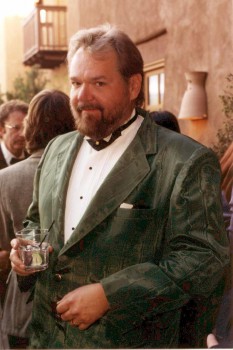 The first time I saw Walter Jon Williams, he was singing a song to mock Asimov’s then editor, Gardner Dozois. Melinda Snodgrass, Ellen Datlow, and Pat Cadigan sang backup.
The first time I saw Walter Jon Williams, he was singing a song to mock Asimov’s then editor, Gardner Dozois. Melinda Snodgrass, Ellen Datlow, and Pat Cadigan sang backup.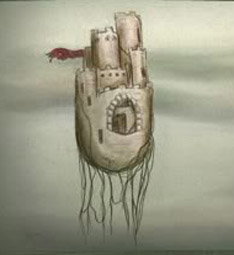 The thing is, I love
The thing is, I love 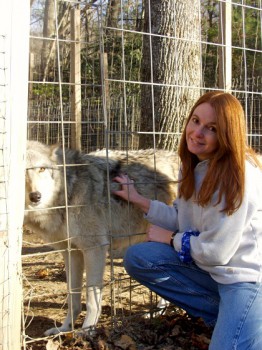
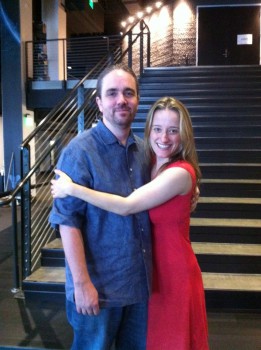

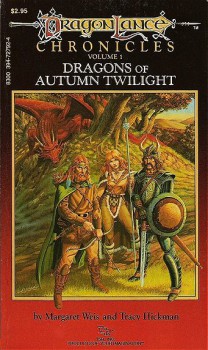 This week concludes Black Gate‘s interview with author and editor James L. Sutter with a discussion of the pros and cons of media-tie in fiction, the Before They Were Giants anthology which collects the first sale short fiction of many big name writers, and a look at what James is working on now. Be sure to check out parts
This week concludes Black Gate‘s interview with author and editor James L. Sutter with a discussion of the pros and cons of media-tie in fiction, the Before They Were Giants anthology which collects the first sale short fiction of many big name writers, and a look at what James is working on now. Be sure to check out parts 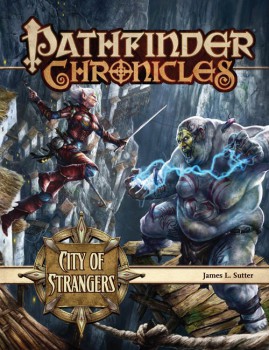 Last week we were just getting started in
Last week we were just getting started in 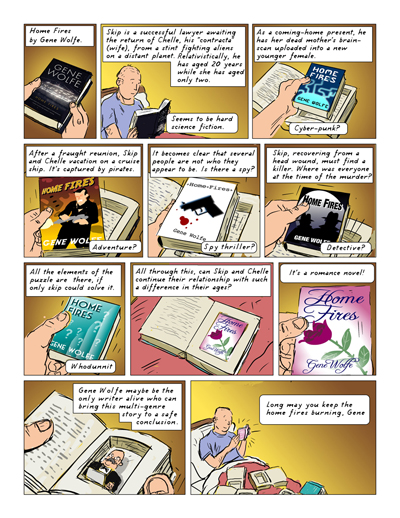

 I recently caught up with Paizo’s James Sutter for a conversation about his work heading up Pathfinder’s new fiction line, as well as his own writing and influences. In part one of our conversation James tells us about his new novel for Pathfinder,
I recently caught up with Paizo’s James Sutter for a conversation about his work heading up Pathfinder’s new fiction line, as well as his own writing and influences. In part one of our conversation James tells us about his new novel for Pathfinder,